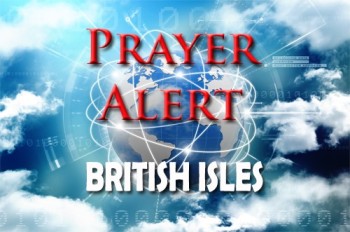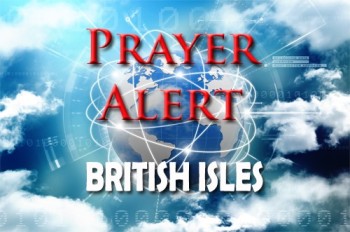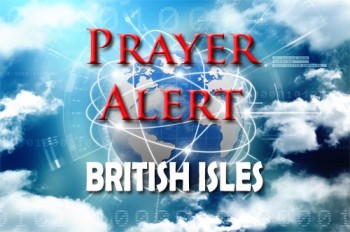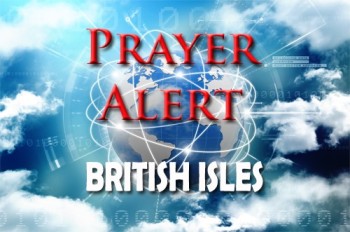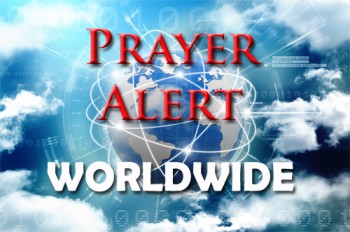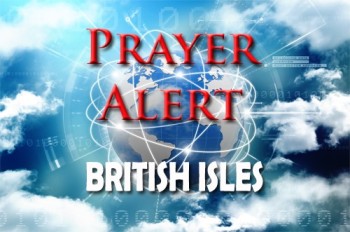Displaying items by tag: Health
Doctors’ appointments: Streeting and BMA in major row
A row has erupted over England’s move to require all GP surgeries to offer online booking for non-urgent appointments, with Wes Streeting accusing the British Medical Association (BMA) of acting like ‘moaning minnies’. While he praised GPs for rapidly adopting the system - now used by more than 98% of practices - the doctors’ union is concerned that patient safety is at risk. The new method of booking, which all doctors have to provide on weekdays from 8:30 am to 6:00 pm, also allows patients to ask questions, describe symptoms, and request callbacks. But the BMA says the software cannot differentiate urgent from routine needs, leaving surgeries overwhelmed and increasing the risk that serious issues will not be triaged properly. Healthwatch England raised concerns about limited patient awareness, difficulties for those less digitally literate, and some practices restricting online slots. Many GPs say they are already at capacity and fear unrealistic expectations without additional resources. The Government maintains it has invested extra funds and recruited more doctors.
Study shows benefits of prostate cancer screening for over-50s
A major European study has found that offering routine prostate cancer screening to all men over 50 could save thousands of lives. The 23-year trial of 162,000 men across eight countries showed that regular prostate-specific antigen (PSA) blood tests reduced prostate cancer deaths by 13%, matching the life-saving impact of breast and bowel cancer screening. The findings strengthen calls for the UK to introduce a national prostate screening programme. Experts say earlier detection allows curative treatment before symptoms appear, though some warn of overdiagnosis and overtreatment of harmless tumours. Advances such as MRI scanning and precision surgery now reduce these risks. Prostate cancer is the UK’s most common cancer, causing more than 12,000 deaths a year. Health officials will review the results next month, and advocates say the evidence is now overwhelming. Campaigners urge government action to protect men’s health, noting that high-risk groups such as black men and those with family histories remain especially vulnerable.
Spain / France: ‘game-changer for women’s health’
A groundbreaking approach to diagnosing endometriosis offers potential to revolutionise research and treatment of the disease. Affecting one in ten women, endometriosis often goes undiagnosed for years. Traditionally, diagnosis involves invasive procedures like laparoscopy. However, scientists in Spain and France have developed a method of analysing blood-derived stem cells (MenSCs) directly from menstrual samples. This preserves the cells' molecular integrity, allowing researchers to study endometriosis more accurately. By using a technique common in cancer diagnosis, researchers achieved an 81% accuracy rate in distinguishing endometriosis patients from healthy individuals. This non-invasive method, developed by endogene.bio and collaborators, could reduce diagnosis time from years to weeks. The study has gained attention from the pharmaceutical industry, as potentially it could transform endometriosis management and patient care. The co-founder of endogene.bio says: ‘This world-first approach to endometriosis research and diagnosis is truly game-changing for women’s health.’
NHS: will new cell therapy be a game-changer?
Scientists are pioneering a revolutionary cell therapy that could make the current treatments of autoimmune diseases such as Crohn’s disease and multiple sclerosis obsolete: Led by Professor Ye Htun Oo at the University of Birmingham, the project uses a patient’s own regulatory T cells to retrain the immune system, combating harmful autoimmune responses which lead to organ failure. This innovative approach may soon replace traditional treatments which often cause serious side effects such as hypertension, diabetes, and cancer risk. With more than 8,000 people currently awaiting transplants in the UK, and each procedure costing up to £100,000, the potential savings to the NHS are immense. The therapy, expected to be available within a decade, could transform the treatment of autoimmune liver disease and related conditions, offering hope for longer, healthier lives without dependency on harsh medications. While further trials are needed, experts describe this research as a ‘game-changer’ for modern medicine.
Huntington’s disease: groundbreaking new therapy brings hope to many
Doctors have reported a groundbreaking success in treating Huntington’s disease, a hereditary neurodegenerative disorder that combines symptoms of dementia, Parkinson’s, and motor neurone disease. A gene therapy trial at University College London slowed disease progression by an average of 75%. This means that a decline expected in one year would now take four, offering patients decades of improved quality of life. The therapy, delivered in a single dose through 12–18 hours of intricate brain surgery, permanently reduces production of the toxic huntingtin protein that kills brain cells. Early treatment may even prevent symptoms from developing. Among 29 trial participants, markers of brain cell death decreased instead of rising, and some patients regained independence: one returned to work after medical retirement. For families like Jack May-Davis’s, who lost his father to Huntington’s and carries the faulty gene himself, the breakthrough brings unprecedented hope. While the treatment will likely be costly, researchers call the results ‘spectacular’ and potentially life-changing.
Europe: increasing number of mosquito-borne diseases
The European Centre for Disease Prevention and Control (ECDC) has warned that Europe is entering a ‘new normal’ of longer and more intense mosquito-borne disease transmission. Rising temperatures, extended summers, milder winters, and shifting rainfall patterns have created conditions for mosquitoes to spread viruses more effectively. The chikungunya-carrying mosquito is now established in 16 European countries and 369 regions, compared to just 114 a decade ago. This year, Europe has recorded 27 chikungunya outbreaks, the highest on record, including a case in Alsace, France - an unusual event for such a northern latitude. Meanwhile, West Nile virus has infected 335 people across eight countries, causing 19 deaths, with Italy hardest hit. Officials caution that more Europeans will face risk in the coming years. The ECDC has urged stronger public health coordination and personal prevention measures, including insect repellent, protective clothing, window screens, and bed nets to reduce exposure.
Nigeria: women vaccinators lead the battle against polio
In a camp just outside Lagos, female vaccinators like Eucharia and Aishatu are leading the charge against polio. Though Nigeria was declared free of wild poliovirus in 2020, the country continues to battle outbreaks of vaccine-derived polio (cVDPV), especially in under-immunised and conflict-affected regions. Women have proved indispensable in this effort, often gaining household access where male health workers cannot due to cultural or security concerns. Despite facing mistrust, misinformation, and physical danger, these women build trust through persistence, community dialogue, and personal sacrifice. Many supplement their modest income through small businesses, unintentionally turning polio campaigns into a platform for female empowerment and entrepreneurship. Their efforts have not only improved vaccination rates but also strengthened public health infrastructure and spurred broader social change. While wild polio is now endemic only in Pakistan and Afghanistan, Nigeria’s experience offers vital lessons. Its fight against polio, led by women, supported by community trust, and bolstered by innovative strategies, has reshaped how public health can be delivered in fragile settings.
Sudan: at least forty dead in a week in worst cholera outbreak in years
Doctors Without Borders (MSF) says that Sudan’s Darfur region is facing its worst cholera outbreak in years, with at least forty deaths reported in the past week and more than 2,470 deaths nationwide since August 2024. The crisis has been caused by the two-year war between Sudan’s army and the paramilitary RSP, which has displaced millions and severely restricted access to clean water. In Tawila, 380,000 displaced people survive on an average of only three litres of water a day - less than half the emergency minimum. Contaminated sources, damaged sanitation systems, and mass displacement have accelerated the disease’s spread, which now reaches beyond Sudan into Chad and South Sudan. MSF’s head of mission has warned that heavy rains are worsening conditions: he said, ‘Survivors of war must not be left to die from a preventable disease.’ Without urgent humanitarian intervention, the outbreak threatens to spiral further, endangering countless lives in an already devastated region.
USA: vaccine projects lose funding
The US health department is to cancel $500 million in funding for 22 mRNA vaccine projects targeting viruses such as flu and Covid-19, including those by Pfizer and Moderna. Health Secretary Robert F Kennedy Jr, a vaccine sceptic, claimed mRNA technology poses more risks than benefits for respiratory viruses. Health experts strongly disagreed, noting that the vaccines were pivotal in slowing Covid-19 and saving millions of lives. They warned that withdrawing support undermines one of the most effective tools for pandemic preparedness. Kennedy argued the department would fund alternative vaccine platforms with broader safety records. However, experts say that viruses mutate naturally and that mRNA vaccines are remarkably safe, effective, and faster to develop than traditional vaccines. The decision is part of broader changes Kennedy has made to vaccine policy, including removing Covid vaccines from the recommended immunisation schedule for healthy children and pregnant women.
Norovirus warning: stay at home for 48 hours
The UK Health Security Agency (UKHSA) has issued a strong public warning about norovirus, urging anyone affected to remain at home for 48 hours after symptoms cease, as individuals can still be infectious. Known as the ‘winter vomiting bug’, norovirus causes vomiting, diarrhoea, and severe discomfort. While typically seasonal, England has seen an alarming spike in cases, with 14,959 reported between 31 March and 27 April - more than double the five-year average. Hospital outbreaks are also up 43.3% above historical norms. Though recent weeks show a slight decline, infection levels remain significantly high. Norovirus spreads easily via contaminated food, surfaces, or close contact, and can be transmitted even before symptoms begin. The UKHSA stresses the importance of staying home, avoiding hospitals or GP visits while symptomatic, and refraining from cooking for others until 48 hours after recovery. Parents are advised not to send children to school during this period, and all should practice vigilant hygiene to prevent spread.
